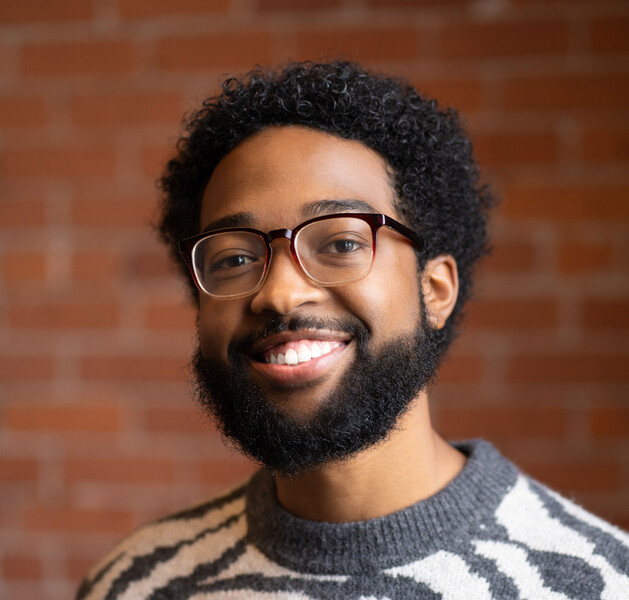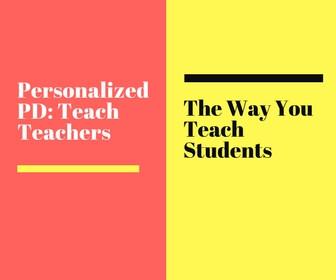Patrick Harris believes in storytelling. A middle school English teacher and ASCD 2020 Emerging Leader, Harris has realized over his seven years in the classroom just how crucial it is for beginning teachers to have spaces to share their experiences with one another. In his book The First Five: A Love Letter to Teachers (Heinemann, 2022)—part memoir, part teacher handbook—Harris asked other teachers about their early-career experiences. He explains that open reflection not only gives educators opportunities to connect, to realize that they aren’t alone, and to trust their own expertise, but also humanizes the profession and creates an honest portrait of teaching. We talked with Harris about what he learned from his own first years and how educators can begin to share their experiences in ways that could help more educators to stay in the classroom for the next five years.
What were your first five years of teaching like, and why did you want to write about them?
My first five years were turbulent and transient and nothing like I had imagined when I was 4 years old and knew I wanted to teach. I wanted to be the image of the incredible teachers that I had the fortune of having in Southfield Public Schools, a suburb outside of Detroit, Michigan. I saw how they brought magic to a single room. That, in professional terms, is realizing that teaching is an art form.
But in my actual first couple of years of teaching, it was hard to find creative freedom in the lesson plans. You had to be very structured and follow a script. I taught in five very different schools over five years: public, private, charter, international, overseas. I taught the wealthiest kids and students living in communities beneath the poverty line. I've worked in schools that have been very diverse racially and also homogeneous ones. I have seen education from every corner you could think of. But I don't think that people saw me from a strength-based perspective; they saw me as just a young teacher who needs to learn the ropes.
At a conference in my first year, I asked the CEO of a new teacher organization, “I keep being told that I'm not ready to be autonomous in my work. When do you think that new teachers deserve this creative autonomy?” The CEO told me, “New teachers need to train for the first five years before they're able to be autonomous.” That doesn't sit well with me. New teachers should be able to utilize their creative freedom. We come in with life experience that we can use in our classrooms, in our lessons, in how we design cultural experiences for our students. That shouldn't be shunned because we're in our first five years.

As schools navigate a third year of the pandemic, it’s an especially tough time to be an educator. Why do you think that it’s so important for teachers to begin, as you write, “sharing their stories, not just [their] strategies” during this time?
Teaching is isolating work, even in the most collaborative environment. There's one teacher, four walls, one door, X amount of kids. It's so easy to feel so alone and bogged down in this work. We need human connection. We need to start sharing our stories, so that we can have this feeling of knowing that, Hey, I'm not in this work by myself. Knowing that I'm not alone in this work gives me a feeling of community that helps me to stay here just a little bit longer. As someone who's now made it to year eight by the grace of God, that it would not have happened if I didn’t have a variety of communities that have held me tight and said, you're not alone in this. This conflict that I just had with my principal or this frustration that I feel towards policy—knowing that I share that feeling with someone is really helpful.
Good teaching is swaggy. By that, I mean that teachers are able to, in the messiness of it, create their own teacher identity. The best teachers take a strategy and make it their own. That only happens when we share the nuance of what it means to be an instructor—share the story behind the strategy, share what happens when folks fail, allow teachers an opportunity to critique or to say, that's not for me. That's the human connection piece that allows for teachers to be autonomous in their work.
What are some ways in which teachers might share their experiences with one another?
We’re seeing a growing number of content creators in the education space who share funny stories on TikTok and Instagram. That's a start, but if we want to sustain new teachers in the profession, we have to move from 30-second videos to longer, ongoing conversations where folks can talk with one another. I would also add that it is mandatory that new teachers join and have access to professional organizations like ASCD, like NCTE, like NCTM, like Black educator alliance organizations that are giving teachers the opportunity to come together and to socialize. Join a professional organization so that you can actually meet people and converse and share ideas. Social media is a start, but taking it offline makes it more worthwhile.
Though your book is a “love letter” to teaching, you don’t shy away from taking a hard look at the challenges of the job. How can educators balance finding sources of joy while also being real about frustrations?
There are some days where I completely love what I do and also many moments where I'm like, “Get me outta here on the first train.” Finding the balance is so individual. What has worked for me has been documenting, journaling, and tweeting my experience—having a collection of moments throughout the year that I can look back on. I dedicate the book to my younger self: “To my younger self way ahead of his time and too in the race to stop for the lessons.” We gotta know as new teachers to stop and to truly spend time reflecting. Making that time for reflection can really help new teachers to find the balance between critique and joy.
"The more human that I am outside of this profession, the easier it is to walk back in."
What advice would you give teachers about working reflection into their day-to-day practices?
Journaling really helps, tweeting really helps—finding a space where you get a chance to write down these memories, so that you can make sense of the moments. And definitely finding your people—the folks that hear you out and challenge you. Who are gonna be the folks that find those moments of joy in your stories? Ain’t no bestie like a teacher bestie. And also, as teachers, we get to model lifelong learning. Students want to know: What are you passionate about outside of education? What are you investing in that is completely outside of these four walls that you can bring back?
I absolutely love scary movies, something that I read books on and go to conferences for and write about. That gives me something to look forward to outside of this very stressful profession, but now I also teach a horror films course for middle schoolers. I do podcasting and speaking sometimes, and I include my students in those experiences. The more human that I am outside of this profession, the easier it is to walk back in. I tell people all the time: I'm not a teacher. I'm a human being that teaches. My humanity comes first. My interests come first. My family comes first. And it forms the way that I show up.
What do you wish you could tell your first-year teacher self now?
The first chapter of the book is such a doozy because teaching was my identity at the time, and I didn't know who I was outside of being an educator. When I began to go to therapy and really dig into my human work, so much of the trauma that I had experienced as a kid and in schools started showing up. I realized that I had used teaching as an escape from the craziness that I was experiencing internally—what it meant to come out, dealing with the impact of sexual trauma, not having enough money but making too much that I couldn't really apply for assistance, moving away from home for the first time—without addressing all the things that were happening internally.
If I could go back and talk to the younger Patrick, I would try to get him to do that self-work a little bit deeper and a lot sooner, because the best teachers also have a great sense of self. When I started to journal more and to forgive myself for the trauma that I had blamed myself for, I started to show up with less weight on my shoulders and a clearer mind. Ideas and creativity came to me sooner. When the struggles did come, I had more capacity to tackle them with more intention. I would tell teachers to really protect yourself and your mental capacity and don't be ashamed to make the best decisions for you. Forgive yourself as you would forgive your students.
What else do you want educators to know at this challenging time in education?
We all are human beings with experiences and trauma and pain and triumph and privilege and so much nuance in our bodies and in our minds. And we can grow so much as a profession if we share those things with one another at the beginning of the year in an honest and genuine way. That helps to build that community and helps us to empathize with our students more.
Editor’s note: This interview has been edited for space.





